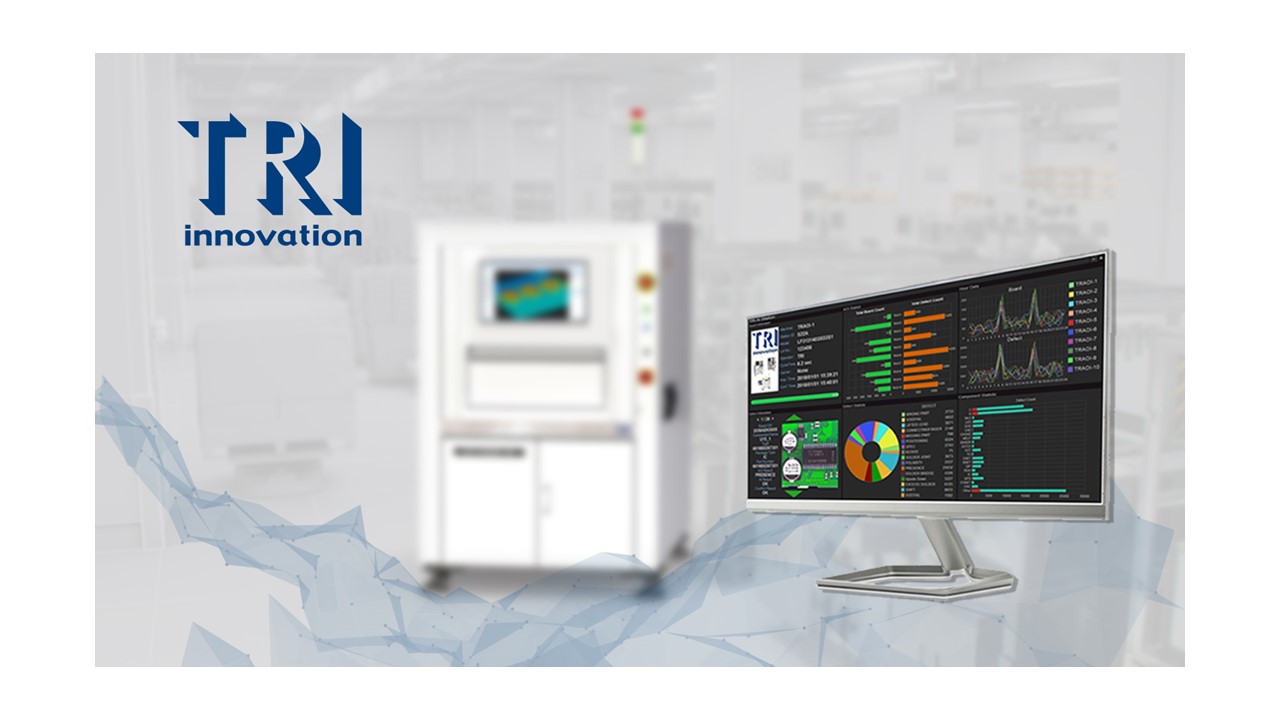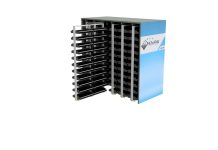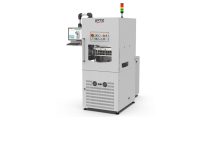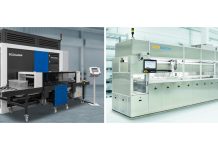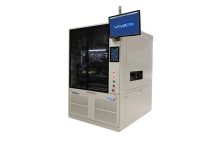Test Research, Inc. (TWSE: 3030), the leading test and inspection systems provider for the electronics manufacturing industry, today announced a collaboration with NVIDIA and leading Taiwanese electronics manufacturers to accelerate the deployment of AI-driven technologies for smart factories.
The collaboration will integrate the cutting-edge NVIDIA Metropolis for Factories workflow into Test Research, Inc. (TRI)’s portfolio to leverage advanced AI capabilities to optimize manufacturing processes through enhanced automation and defect detection. By combining TRI’s domain expertise in test and inspection with NVIDIA’s AI software stack and computing capabilities, TRI aims to empower manufacturers with intelligent solutions that drive operational efficiencies and unlock new levels of productivity for the electronics manufacturing industry. And looking forward TRI plans to leverage NVIDIA NIM to further increase performance and throughput.
“We are thrilled to collaborate with NVIDIA to deliver innovative, future-proof solutions to our customers in the electronics manufacturing industry,” said Jim Lin, Vice President of Test Research Inc. “With NVIDIA Metropolis for Factories, TRI is poised to help drive the adoption of AI in smart factories, empowering manufacturers to embrace the technologies of tomorrow and stay ahead of the curve.”
NVIDIA Metropolis for Factories is a workflow that simplifies the development, deployment, and scaling of AI-enabled visual inspection applications from edge to cloud. It supports data labeling, computer-vision model training, and model integration, and enables industrial technology companies and manufacturers to develop, deploy, and manage customized quality-control systems. It allows TRI to develop incredibly accurate inspection applications, such as for automated optical inspection (AOI). Metropolis for Factories is helping manufacturers increase production line throughput, reduce costs, and improve production quality.
TRI AI Defect Detection
Thanks to TRI’s AI verification advancements, the detection rate of components has improved significantly, the AI detection accuracy for general chip defects now exceeds 99%. Specific improvements include a detection rate of over 95% for components such as OSC, MLD, SOD, SOT23, RNET, and CNET. X-ray void detection with AI implementation improves the first pass yield rate (FPY) from 85% to 98%. For complex components like the Paladin connector, AI classification reduces the false case rate from approximately 25,000 ppm to around 3,000 ppm, an 88% improvement. Detection improvements are also present in the OCR (optical character recognition) algorithms, and traditional methods achieve 89% accuracy, while AI deep learning OCR reaches a 99.58% detection rate.
TRI AI Smart Programming
TRI AI Smart Programming facilitates predictive decision-making similar to that of an expert or experienced operator, reducing programming time, downtime, and operator training. Traditional programming of 718 components would take around 60 minutes; AI programming reduces this to just 9 minutes, an 85% improvement.
TRI AI Verify Host
The AI Verify Host is a smart repair station that reduces the need for manual re-inspection and lowers operational costs, powered by the Metropolis for Factories workflow. Typically, repair station operators have lower performance and training is not cost-effective. The AI-powered repair station can continuously operate efficiently, outperforming operators while lowering false calls and providing real-time data analytics of the inspection status.
TRI AI Station
Inspection programming is often limited to the operator’s knowledge. TRI AI Station addresses this by performing AI-powered inspections with existing AI models, optimizing the process, increasing efficiency, and lowering operational costs for the experienced workforce. The AI Station supports multiple AOIs and smart scheduling, reducing AI hardware costs and improving resource management.
TRI AI Training Tool
TRI AI Training Tool is a user-friendly interface that generates AI models from existing inspection data. The tool includes a built-in AI labeling tool and supports classification, segmentation, OCR, detection tools, continued training, heat maps, and more.
TRI will harness NVIDIA Triton Inference Server software and the NVIDIA TensorRT software development kit to further speed up AI inferencing of cutting-edge AI-powered solutions for test and inspection, and smart factories for the electronics manufacturing industry. These AI-driven capabilities will enable manufacturers to readily adopt and benefit from innovative AI-powered solutions.
To learn more, visit www.tri.com.tw.


